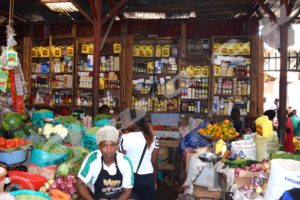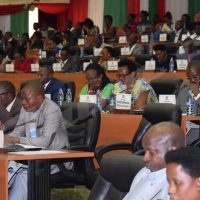Due to the deterioration of food security and the rise in prices of some staple foods, the government plans to remove all taxes on certain imported products.

Some imported staple food will be exempted from taxes
“The tax and customs duty exemption on basic products should cover customs duties, administrative charges and value added tax”, says Philippe Nzobonariba, the government spokesperson. The list of foods to be tax-exempt will be established by law.
“We often see a food deficit due to climate change. Thanks to the rainy season, the situation will improve and the harvest will increase. The government spokesperson says the cabinet has proposed that this period of the tax exemption is to be limited to 3 months.
Noel Nkurunziza, the chairman of the Burundi association of consumers [ABUCO] says the measure will help importers, and get more products onto the market. “Consumers will have various choices of products to buy, having been reluctant to buy some products for a very high price”, he says.
Traders at the Buyenzi Market called “Chez Sion” say the price of imported food will decrease. The price of rice from Zambia has risen to BIF 300 per kilo. A kilo of rice from Zambia costs BIF 2300 while it cost BIF 2000 just one month ago. Rice from Tanzania costs BIF 2800 per kilo, while it cost BIF 2400 per kilo few days ago.
Consumers welcome the government’s measure. “The price of some staple foods will certainly decrease and we should be able to cover our needs, even if the new rules are limited to only three months”, says a consumer met at Buyenzi market.
In July 2016, the Burundian government banned any exports of staple foods because of shortages. For this reason, VAT on imported staple foods was decreased in 2016 to 10% instead of 18%. According to the latest UNDP Burundi survey, 82.1% of the populations live on $1.25 a day or less and 90% of the Burundian populations rely on agriculture. The UN NGOs reported in January 2017 that three millions of Burundians need to be assisted.
Even before the ongoing political crisis that began in April 2015 when President announced he would run for a controversial third term, Burundi was considered one of the hungriest countries in the world.



















 IWACU Open Data
IWACU Open Data

